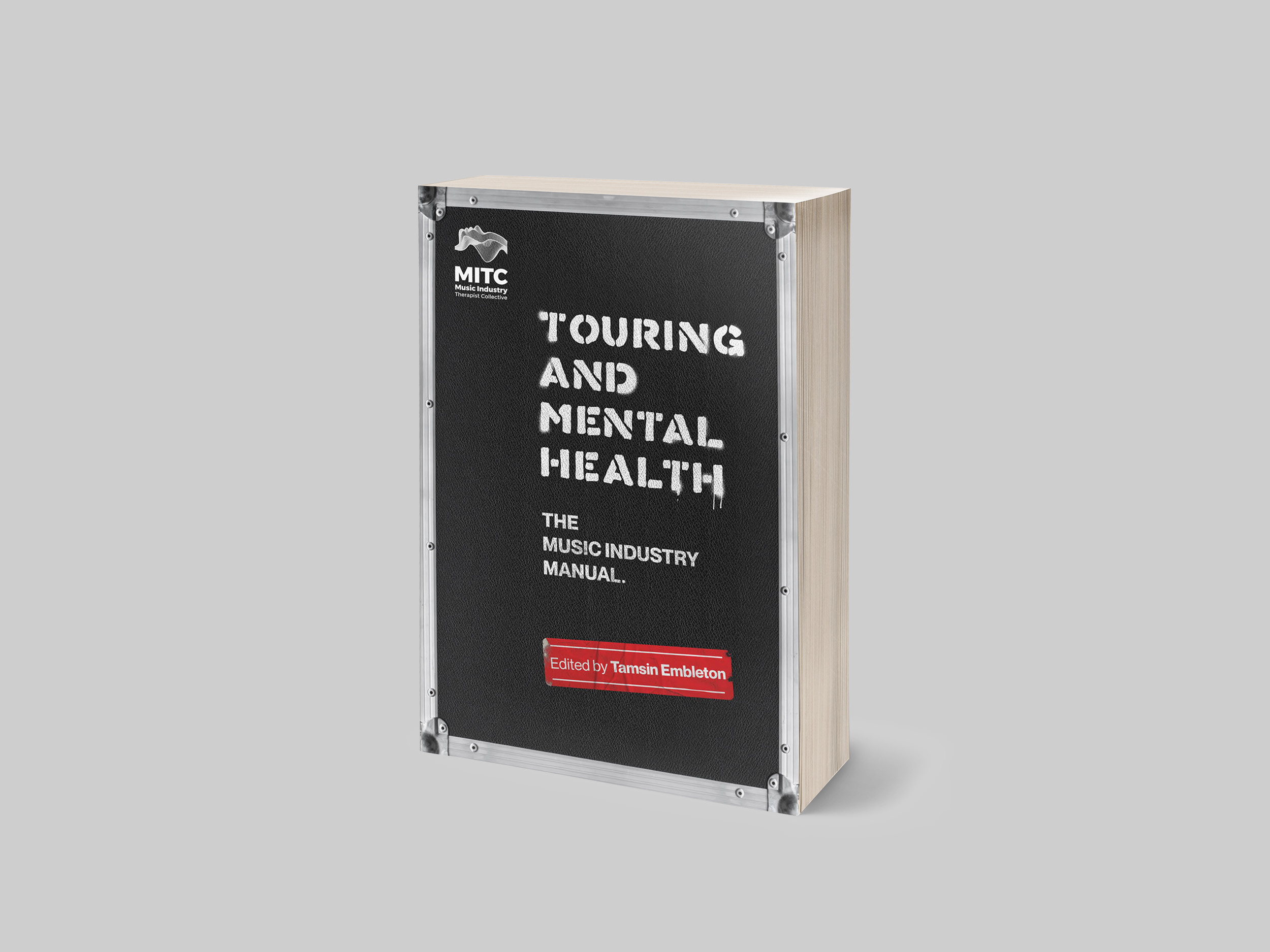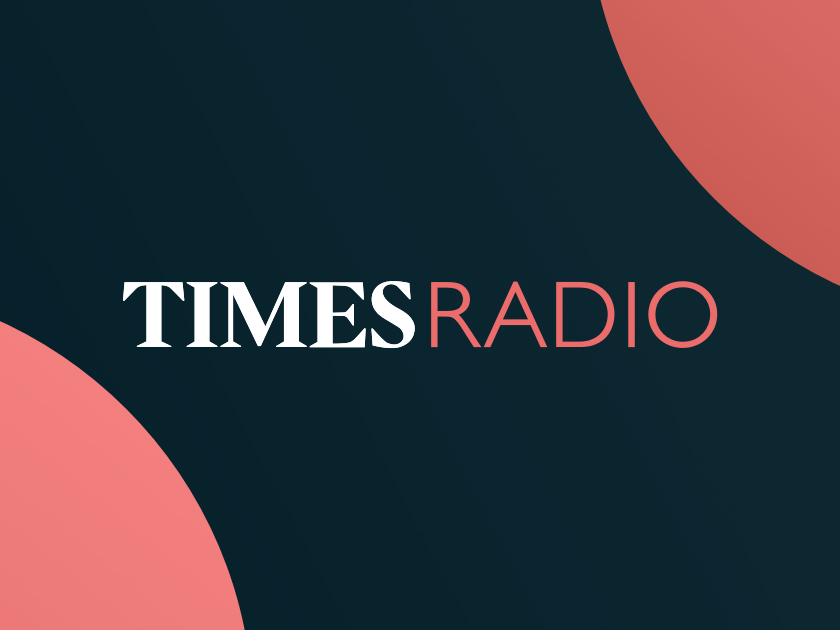MBW Views is a series of exclusive op/eds from eminent music industry people… with something to say. The following comes from Tamsin Embleton, the Editor of the recently published book, Touring And Mental Health: The Music Industry Manual (Omnibus Press). She is the founder of the Music Industry Therapist Collective (MITC), a global group of specialist health clinicians who combine their unique experience of working in the music business prior to retraining as psychotherapists, psychologists and health professionals (contact them at musicindustrytherapists.com). She previously worked as a booker for Mean Fiddler, Killer B Music, Standon Calling Festival and Metropolis Studios among others.

It didn’t take long for the penny to drop. We were ploughing through the second week of the tour when I realised I had grossly underestimated the impact touring would take on my mood and mindset. I was feeling low and agitated.
Prior to joining the Grinderman 2 tour (as Anna Calvi’s tour manager), I thought I knew what touring was all about. I’d spent years working in venues, mainly as a booker and promoter, and I enjoyed repping my own shows. I pictured the thrill and spectacle of the live shows, adventures with my tour buddies, the special ‘insider’ status, and the novel customs, cuisines, people and scenery we’d encounter along the way.
As a fan of Cheap Hotel and Nick Cave and the Bad Seeds, I couldn’t think of a better way to spend the winter, so over a swift half in the Bull & Gate I agreed to go on tour.
Now it seemed that my experience in venues had only provided a snapshot of what touring is like. The full picture was now careering into view. Though undoubtedly rewarding, touring was also impacting me in ways that I hadn’t foreseen. We weren’t even getting trashed every night! Our touring party barely drank.
Several years in therapy had furnished me with a language for what I was experiencing and what I’d glimpsed backstage over the years. Withdrawal, fatigue, irritability, conflict, anxiety, grandiosity, low self-esteem, hyperactivity, impulsivity, low mood and excessive consumption of whatever was within reach. But I didn’t realise why these behaviours occurred, or how widespread suffering was on the road. I wanted to learn more.
I began studying the psychological impact of touring around 2016, during my psychotherapy training. The results of which form the basis of my recent publication, Touring and Mental Health: the Music Industry Manual. I built on that initial research by interviewing 80 seasoned touring professionals and artists from all corners of the live music industry.
While crowdfunding the book, [Live Nation CEO] Michael Rapino provided financial support that enabled me to bring on a team of writers and researchers covering specialist topics like mental health crises, trauma, addiction (substance; sex and porn), anxiety (performance; flight; general), group dynamics, relationship difficulties, meditation, breathwork, exercising on the road, coping with eating disorders, dealing with the media, nutrition, sleep science, and health issues like hearing health, sexual health, general health and vocal health.
Touring and Mental Health contains everything you need to know about how touring can impact your mind, brain and body – and what the powers that be can do to improve living and working conditions for those they send out on the road.
I discovered when I began to study this topic that I’m not alone in finding touring difficult. Many people suffer on the road. Touring can push you past the natural limits of your mind and body, leading to burnouts, breakdowns, overdoses and relapses.
The conditions of touring can both create problems (through a myriad of biological, social and psychological stressors) as well as exacerbate underlying vulnerabilities for those who tour. It’s high risk and high reward; feast or famine; sink or swim. Even artists as experienced and well-resourced as Nile Rodgers describe intense touring as gruelling.
Elsewhere, artists like Arlo Parks, Wet Leg, James Blake, Selena Gomez and Shawn Mendes have cancelled shows citing mental ill health. Rather than using euphemisms like ‘exhaustion’, these artists are stating plainly that touring has led to mental health decline. The question is – is the industry willing to change?
If you’re wondering what happens on the road, I’ll cherry-pick a few pointers for you. The first thing to know is that touring involves stark contrasts. It is a rollercoaster of highs and lows. Your appraisal of the stress you face (whether it is tolerable, escapable or within your control) is a key factor in how you will cope with it. If you don’t feel you are in the driver’s seat, your mental health will suffer. There are other factors involved, some outside of your control (such as your biological sensitivity to stress).
Each role brings specific stressors and, as the weeks progress, these stressors accumulate. It’s important to know that when stress comes in short bursts, is moderate in intensity and you feel it is manageable, it can motivate you to problem-solve and reach optimal performance. When it’s severe, prolonged, there’s no end in sight and if feels out of control, it can lead to serious physical and psychological difficulties. Chronic stress is thought to play a part in heart disease, addiction, major depressive disorder and obesity, to name a few.
“YOUR WORKPLACE IS WHERE OTHER PEOPLE GO TO PARTY; IT MAY FEEL LIKE ABSTAINING COMES AT A SOCIAL COST.”
As an artist, touring provides an opportunity to hone your stagecraft, bring your records to life and engage your audience. If it goes well, the audience endorses your expressions of self – reassuring you that you are worthy of love. Performance can be uplifting, but it can take a lot out of you afterwards. You give a lot of yourself up there!
It’s worth bearing in mind that being confronted with praise night after night may start to distort your sense of self. And on tour you are separated from the people, places and practices that ordinarily ground and soothe you. Loved ones may be in different time zones and headspaces when you finally find the solitude and Wi-Fi signal strength that would
enable connection.
Touring also distances you from the ordinary features of life that contribute to a general sense of well-being, like your own bed, knowing how to get around, proximity to your local gym, yoga studio or green space, speaking the local language and knowing where to buy familiar food.
Even performance has drawbacks. Music performance anxiety is experienced by a wide range of professionals – bringing with it a whole host of physical and psychological symptoms that permeate the time preceding (and sometimes even during and post) your set. Not all creators are naturally comfortable on stage, and it may prove difficult to resist the array of quick fixes in dressing rooms that promise relief, even if a part of you knows it might lead to problems later on.
Research shows that whilst practising music at home can be stress-relieving (reducing the production of stress hormones), playing in front of an audience substantially increases cortisol production. And this occurs whatever the venue capacity, and however practised and experienced you are (higher levels of cortisol are experienced by those who struggle with performance anxiety).
Some evidence suggests that the cortisol levels spiked by performance may reach the same heights as if you were skydiving, and they might not settle back to baseline by the next morning. This means you probably won’t get the benefit of restorative sleep.
Instead, you’ll wake up with a system that is already mildly stressed before potentially going on to perform again the next day. This is how stress builds.
Many people struggle to wind down post-show. Raised stress hormones coupled with the sensory stimulation and activity of shows delay the production of melatonin (the hormone that triggers sleepiness), disrupting the sleep-wake cycle.
You might have an afterparty to attend, or you might want to extend the high from the show and stave off the post-show blues. Or maybe you’re just celebrating? After all your workplace is where other people go to party; it may feel like abstaining comes at a social cost. For those practising moderation or who are in recovery from addiction, touring can be a minefield.
If rest is hard to come by, you might attempt to artificially induce it, sedating yourself with food, alcohol or drugs. Some may find the movement of a tour bus aids sleep, whilst others find sleeping in those conditions more difficult. Changeable sleep environments like new hotel rooms can also make it tricky to enjoy the restorative benefits of a good night’s sleep.
Other potential physical problems include illness through immunosuppression (due to cumulative stress), exposure to foreign antigens or accidents in the workplace. Overuse of particular body parts can lead to long-lasting and potentially career-changing injuries like repetitive strain injuries, vocal nodules and hearing issues like noise-induced hearing loss or tinnitus.
“TOURING INVOLVES STARK CONTRASTS. IT’S A ROLLERCOASTER OF HIGHS AND LOWS.”
It’s worth bearing in mind that your perception of tinnitus and pain increases when you are anxious. Your diet may be compromised by catering and riders deficient in nutrition, meagre per diems or simply through making poor choices when stressed and far away from home.
Who can blame you for indulging when you’re homesick, worn out, fed up and catering have laid on a delicious spread of comfort food? Likewise, it’s easy to get dehydrated when running on coffee, energy drinks and/or cases of beer.
Whether artist or crew, the pressure to perform at your best is hard to keep up day-in, day-out. As an artist, or someone in a managerial position, you may find it hard to switch off, feeling that you are always ‘on’ or working in a state of urgency. There may be days you don’t feel able to perform, times when the media probe painful memories or when fans become hysterical or overfamiliar. Habits form and disordered eating patterns may flare up through factors like cumulative stress, perfectionism and lack of control.
If you’re travelling within a group, you might develop tight bonds whilst feeling up against it – though group dynamics aren’t always easy. Feelings can spread through the group (emotional contagion) or problems may be avoided whilst the group tries to keep its head above water (culture of silence). Cliques form, gossip spreads, and power dynamics play out. If managers rule by intimidation or fail to spot the signs that someone is struggling, psychological safety is compromised.
Where to from here? In the absence of industry guidance on schedule intensity, use the intel you have in your team – if the TM is a regular – they’ll know your artist’s capacities. Ask the PM for input on the impact on crew of the routing (your crew are the first in and last out – look after them).
Adequate downtime needs to be woven in from the start. Press days and travel days aren’t days off; both are tiring. Broaden your approach from building individual resilience – which will only get us so far if the system remains dysfunctional – to accepting collective responsibility and building the resilience of your team. Organisations like Music Industry Therapist Collective can offer consultation, psychoeducation and health monitoring, and of course, there’s 600+ pages of advice in the book I’ve compiled. Let’s shift the culture.



